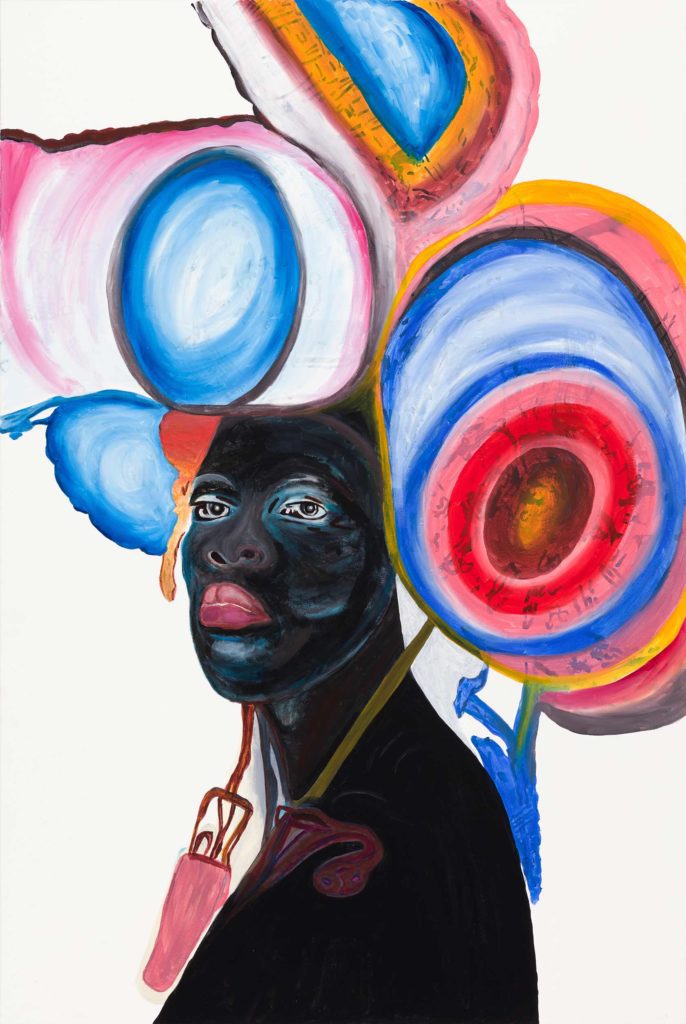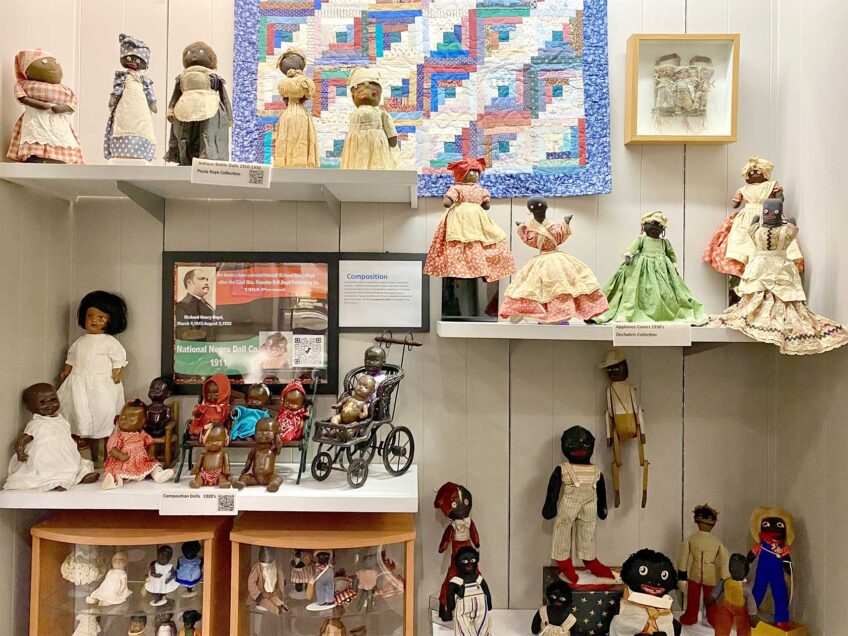‘Being Muholi: Portraits as Resistance’
South African visual activist’s groundbreaking exhibit at the Gardner

Every turn at the Isabella Stewart Gardner Museum offers a new view of “Being Muholi: Portraits as Resistance,” a groundbreaking exhibition of the South African visual activist’s work on view through May 8. Zenele Muholi is known for their striking black-and-white photography; the Gardner show is the first time the artist’s painting and sculpture pieces have been shown in an exhibition alongside their photographs.

Bester I, Mayotte, 2015 Zanele Muholi. Courtesy of the artist, Yancey Richardson Gallery, New York, and Stevenson Gallery, Cape Town/Johannesburg
In something of a takeover, the exhibition utilizes the exterior public art space, the Hostetter Gallery in the museum’s contemporary wing and the Fenway Gallery in the historic Gardner museum. Curators Pieranna Cavalchini, the museum’s Tom and Lisa Blumenthal curator of contemporary art, and theo tyson, Penny Vinik curator of fashion arts at the Museum of Fine Arts, Boston, visited Muholi in South Africa to conceptualize the show with the artist.
In the contemporary gallery space, a wall of vibrant, colorful paintings faces a wall of Muholi’s classic black-and-white photographs. Muholi began exploring paint as a medium during the pandemic, when they had time off from travel to better reflect on their native South Africa and experiment with new creative processes.
In many ways the paintings feel similar to the photographs. They are closely cropped, mostly showing subjects from the bust up. Figures are bold and powerful, but graceful. Hair is a key highlight, as it is in much of Muholi’s work. Black hair textures and styles are often used as jumping off points for discrimination, but in Muholi’s paintings and photographs, hair acts as a crown, a point of power and energy.

Itha, 2021 Zanele Muholi. Courtesy of the artist, Yancey Richardson Gallery, New York, and Stevenson Gallery, Cape Town/Johannesburg
“I’m reclaiming my Blackness, which I feel is continuously performed by the privileged other,” says Muholi. “My reality is that I do not mimic being Black; it is my skin, and the experience of being Black is deeply entrenched in me. Just like our ancestors, we live as Black people 365 days a year, and we should speak without fear.”
These paintings connect directly to the “Somnyama Ngonyama,” a self-portrait series translated as “Hail the Dark Lioness.” Installed directly across from the paintings, selections from this series show Muholi photographed in different personas, highlighting their native Zulu heritage and conceptions of Black identity, and often using household goods to both create dynamic shapes and comment on societal consumption.
“To me, ‘Somnyama Ngonyama’ is one way of reckoning with this past — to address its politics of race, racism and colonialism — and it is also a way of addressing a past that still informs the present,” says Muholi. “Photography for me is always first and foremost a tool of activism, driven by the idea of social change.”
In “Cwazimula,” Muholi wears silver reflective bags acting like a crown and a dress on their form. These are Whole Foods delivery bags that tyson gave the artist during Muholi’s 2019 residency with the Gardner. The exhibition includes five pieces that were created during that residency. The bags create an architectural aesthetic element and reference the crown theme, while also making a comment on sustainability and waste.

Muholi, 2021, Zanele Muholi. Courtesy of the artist, Yancey Richardson Gallery, New York, and Stevenson Gallery, Cape Town/Johannesburg.
Community collaboration is also a key part of Muholi’s practice. That manifests in a number of ways in “Being Muholi.” The contemporary gallery has a white-board wall where visitors can write down reflections and reactions to the show. Boston’s poet laureate, Porsha Olayiwola, has written two poems, one in direct reaction to a specific photograph and one in response to the LGBTQIA+ representation in the Fenway Gallery. These poems have been meticulously integrated into the exhibition’s landscape. Using a QR code, visitors can hear the poet read them. A series of community events centering the show will be hosted in the coming months.
At the center of the room is a powerful bronze sculpture, the artist’s first ever. Simply titled “Muholi,” the piece is a three-dimensional manifestation of the sculptural elements in Muholi’s photographs. tyson describes how the piece embodies the experience of many Black female-identifying people. “There’s this expectation that you are as strong and formidable as that bronze sculpture,” says tyson. “That strength comes from a place of softness.”
Strength is a central theme in Muholi’s work, but it doesn’t exist in a vacuum. Muholi’s self-portraits and the portraits in the Fenway Gallery, which feature transgender beauty queens and intimate moments in queer relationships, make space for LGBTQIA+ people in the traditionally white, heteronormative museum world. This space is both metaphorical and physical, as these artworks sit within the historic Gardner Museum. But that space needs to be made because of the abuse these subjects have faced, particularly in Muholi’s South African homeland.
“I think this is one of the most beautiful examples of the dichotomy between joy and pain,” says tyson of the show. “It’s not about survival — it’s about thriving.”


![Banner [Virtual] Art Gallery](https://baystatebanner.com/wp-content/uploads/2024/04/Cagen-Luse_Men-at-store-e1713991226112-150x150.jpg)

![Banner [Virtual] Art Gallery](https://baystatebanner.com/wp-content/uploads/2024/04/Cagen-Luse_Men-at-store-e1713991226112-848x569.jpg)

